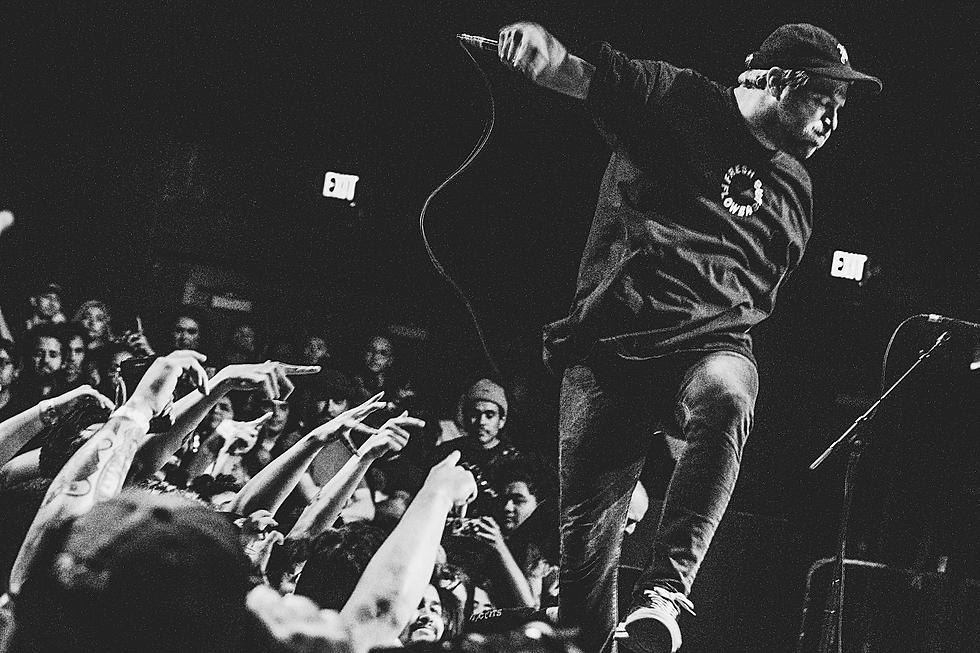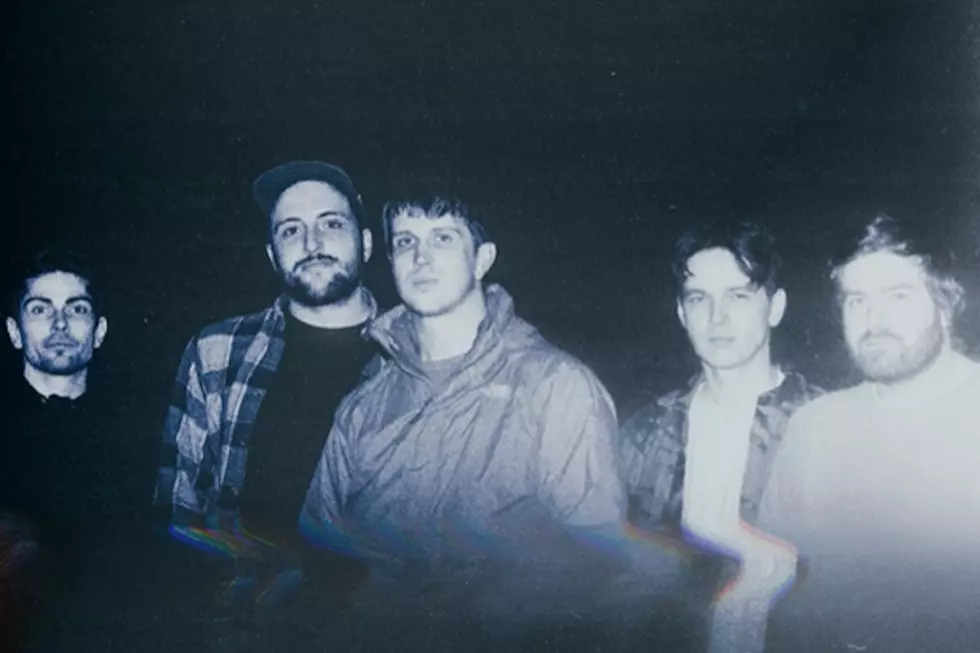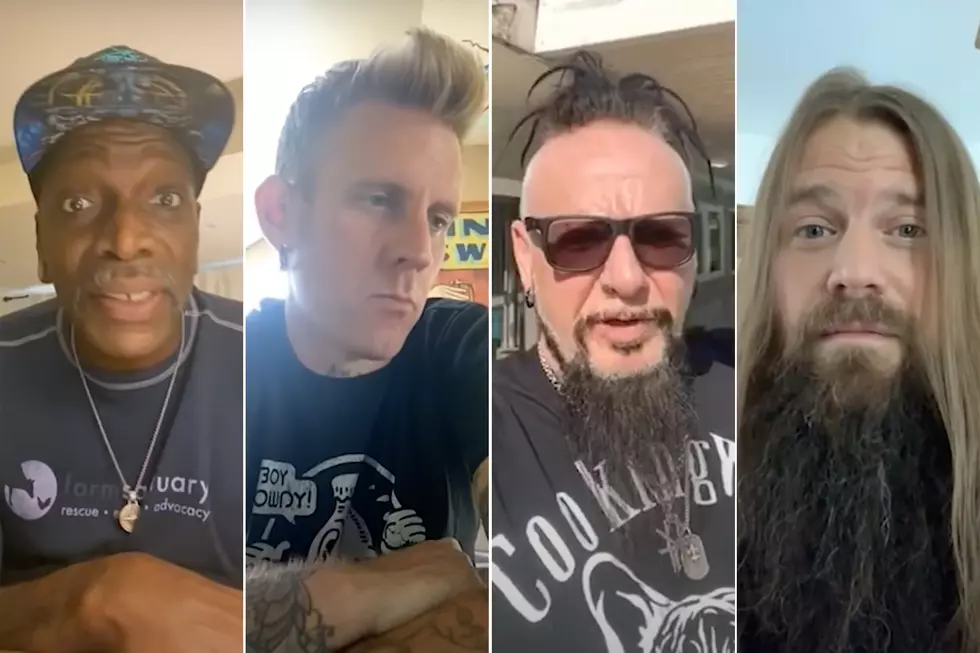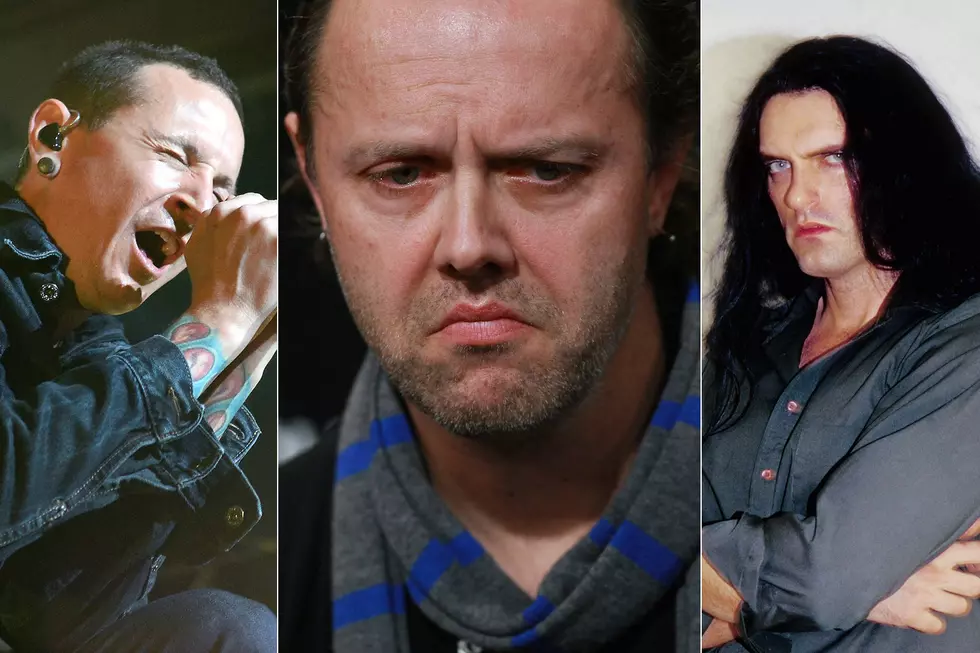
Counterparts’ Brendan Murphy Explains What Music Journalists Are Doing Wrong
“As far as I'm concerned, it's a damned shame that a field as potentially dynamic and vital as journalism should be overrun with dullards, bums, and hacks, hag-ridden with myopia, apathy, and complacence, and generally stuck in a bog of stagnant mediocrity.” — Hunter S. Thompson in a cover letter to the ‘Vancouver Sun’ (1958)
Journalist and author Hunter S. Thompson is renowned and revered for his arrogant brazenness about what he perceived to be the facts of life, one of which being the meaning of journalism and how so many people are bad at it. In a recent tweet, Counterparts vocalist Brendan Murphy echoed Thompson’s sentiments much more succinctly:
So, we interviewed him.
But instead of finding someone filled with animosity, Murphy is actually very chatty and excitable. That, it turns out, is the precise reason he is so bored and exhausted by the majority of music journalists.
“I want there to be some sort of mental stimulation,” he says. “I want the questions to be insightful. If people put in a little bit more effort...I like to talk. I like to explain myself. I can talk to people for hours.”
Indeed, this proves to be true as the Loudwire interview lasts so long it runs out the cell phone battery. But this isn’t the case with most interviews, Murphy laments. Among the list of abuses he says he runs into regularly are lack of passion, lack of originality and lack of respect.
“I dislike when I can tell the person didn’t listen to our band once,” he says. “They don’t care. It’s like someone just tells them, ‘Just go interview the fucking Twitter guy from Counterparts.’ The questions are the exact same. In some of them, they press me and they’re borderline insulting…[It’s] when I feel like someone who doesn’t give a shit is like, ‘Yeah, shut up and answer the questions.’”
For the record, questions future interviewers should not ask Murphy include:
“What was it like working with Will Putney?”
“I don’t know, we’ve worked with him for six years. It’s the same. A new restaurant opened up nearby. That’s the only difference.”
“Why aren’t you big in Europe yet?”
“I don’t know! Interview me, don’t interrogate me.”
“What does the album art mean to you?”
“It just looks cool. I don’t know what to tell you. Not everything needs to have some crazy explanation.”
“What’s with all the member changes?”
“It’s a fuckin’ revolving door at this point. I don’t really know what you want me to say. We started when we were 16.”
Another egregious yet all too common journalistic error is to ask the same question other outlets have already reported on.
“There are a lot of questions that I don’t mind answering initially,” Murphy explains, “but when I’m on my fifteenth interview where I’ve been asked ‘What does Nothing Left To Love mean?’ I’m like, ‘I answered this. It is what it is. Will you love me when I’m fuckin’ dead? Or will you love me at my lowest point?’ I have a notepad file where I just copy and paste it.
“I feel like both the interviewer and the interviewee can come up with something a little bit cooler. I’ve done that where I’ve responded to people saying, ‘I don’t really feel like answering this question, let’s think of something else.’ Then I never hear back. Work with me, you know? There’s definitely things I want to talk about and I get excited about. Like this, for example. This interview’s been great.”
Still, while there are journalists who lack skill and imagination, Murphy admits that the emphatic nature of his complaints is partly due to him simply being a Twitter troll. (Which apparently works, by the way, because according to him, journalists have stepped up their game since the initial tweet.)
“To be fair,” he says, “I definitely ham it up and make it sound worse than it actually is just because it’s funny. We’ve been a band for a while and around 2010, I noticed bands’ social media stuff was the same copy paste tour announcement. The way they talked, it was so obviously [their] fuckin’ manager. I wanted something to separate us.
“We’re normal,” Murphy continues. “We’re funny. Cracking jokes, not taking shit seriously on the internet. Initially there was a backlash. Rather than being like, ‘Oh, they don’t like that we should probably stop,’ we just kind of kept doing it and kicked it up even more. Eventually kids were like, ‘I think I like Counterparts now because of this.’ It’s almost like the people who like our band are more our friends than fans. There are pros and cons that come with that, but it allows me to just be more myself. I’m goofy off-stage, and that’s what you’re getting when I have a microphone in my hand.”
But just being amusing is not the only trait that sets Counterparts apart from all of the other hardcore and metalcore bands. Ironically, the band’s music has always been—and continues to be with their latest record Nothing Left To Love—incredibly depressing.
On their recent tour with Stray From The Path, Varials, END and Chamber, Counterparts ended every set with the lyrics, “I fucking hate the world / I fucking hate myself” from their song “The Disconnect.” It’s almost a tradition that fans have come to expect, and that is the moment they actually look forward to the most. It’s an intriguing sight, people smiling ear to ear while shouting about how much everything sucks.
“When you have a room full of people and it’s sold out and you look around and all these other people are saying it too and there’s a certain passion behind it...the hundred people that get onstage and sing it with us...all these people feel the same way that I do. There’s a weird sense of solidarity in this.”
“That’s why I still do it,” Murphy concludes. “I’m not a therapist by any means, and I don’t really know how I’m supposed to help people who are going through what I went through, but I think that if people come to our shows and then go home thinking [they] want to get help, then cool. I won. I did what I set out to do.”
Thanks to Brendan Murphy for the interview. You can pick up Counterparts' stellar 'Nothing Left To Love' here.
See Counterparts in the Best Metal Albums of 2019
More From Noisecreep









